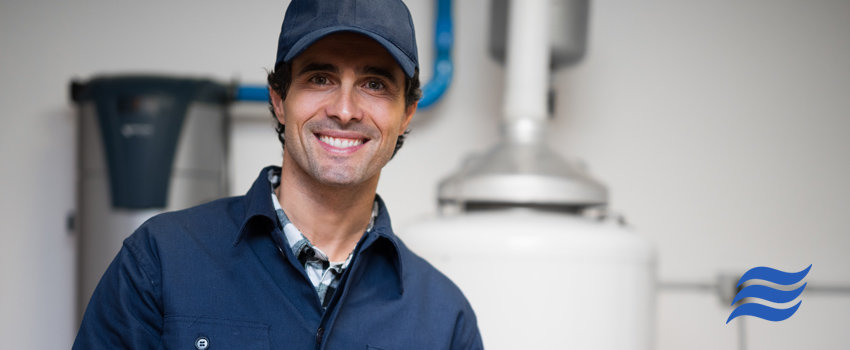
The Basics of Water Heater Maintenance
Think about all the things you use your water heater for on a daily basis: hot showers, washing dishes, cleaning and cooking are just a few of the reasons you need easy access to hot water. In addition to that, if your water heater broke, not only would you be inconvenienced, but you may have a big mess to clean and the expense of an unexpected replacement. Thus, it is vital that you keep your hot water heater properly maintained. To help you with this task, we’ve put together some easy-to-understand advice about water heater maintenance that is a must-read for every homeowner.
When Do You Need to Maintain Your Water Heater?
First, realize that hot water heaters are sensitive devices that can cause serious damage if they break or burst. Because of this, regular maintenance is recommended. If your water heater hasn’t been inspected or maintained in the past couple of years, or if it is over 10 years old and hasn’t been recently maintained, it’s time to call a professional sooner, rather than later. If your system is newer or you have already been getting professional maintenance, you may simply need to inspect the device yourself and make sure all is in order.
What Does Maintenance Entail?
Maintenance on a hot water heater varies depending on the type of unit and the age. Modern units really do not need as much work. The basic maintenance includes testing the pressure valve, checking the temperature to make sure the thermostat is working correctly. In addition, it is recommended to drain the water from the unit at least once a year. Doing this will allow sediment to drain from the tank. If sediment is allowed to build up, it can lead to inefficiency and even cause your water to be discolored or have an unpleasant aroma.
Tips from a Pro
- If you’re looking to keep your unit in the best possible condition, these tips–direct from the experts at Nichols & Phipps are a good place to start.
- Visual maintenance is important. Take a few moments to examine your unit on a regular basis and make sure there are no visible leaks or signs of rust on the outside of the unit.
- Check the water heater flue piping to makes sure it is intact and that all connecting flue pipe fittings are secured to vent properly.
- Check to make certain there are no items placed on or around the water heater. It is especially important to make sure there are no flammable objects or chemicals stored nearby.
- Gas water heaters and electric water heaters require flushing. This should be done once every year or two to assure it continues to operate properly.
- In addition, gas water heater operation inspection should be done once a year by a professional.
While a knowledgeable DIYer can maintain a hot water heater, it makes sense to work with a professional on this task. Doing this will assure you are not missing any small problems and it can save you time and effort in doing this task.
If you haven’t given your water heater the attention it deserves, it’s not too late to make a difference. Contact Nichols & Phipps today and set up a maintenance appointment. We offer water heater maintenance, repair, and replacement to customers throughout Northern Virginia. Our team of water heater experts is ready to help you protect that ever-important piece of equipment in your home.
Check out our other blogs for some great plumbing advice:
- How to unclog a blocked toilet
- 5 helpful tips for troublesome toilets
- Is it Time to Replace Your Toilet?
- To Flush or NOT to Flush?
- Plumbing Tricks and Insider Tips of the Trade
- What is the Best Type of Water Heater to Use in Northern Virginia?
- Plumbing Noises and What They Mean
- The 6 Fundamentals of Bathroom Remodeling
- Dropped it Down the Drain… Now What?
- Drain Maintenance 101: Causes & Prevention
- The Water Heater Dilemma – Repair or Replace?
